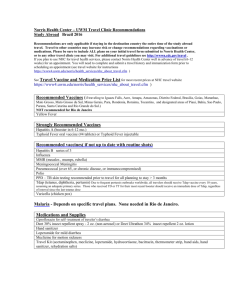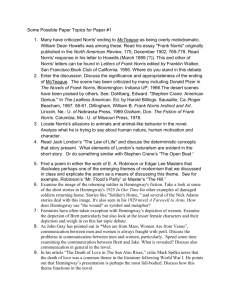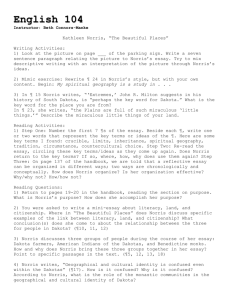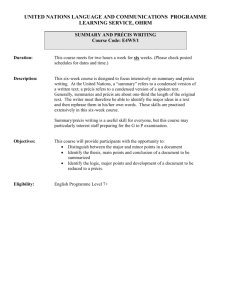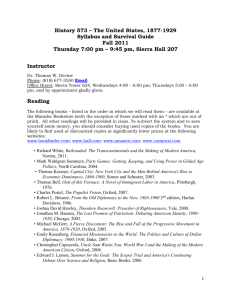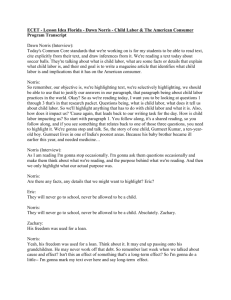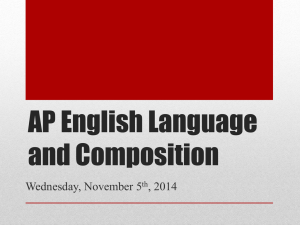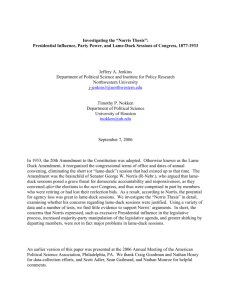Students are advised to take their presentations
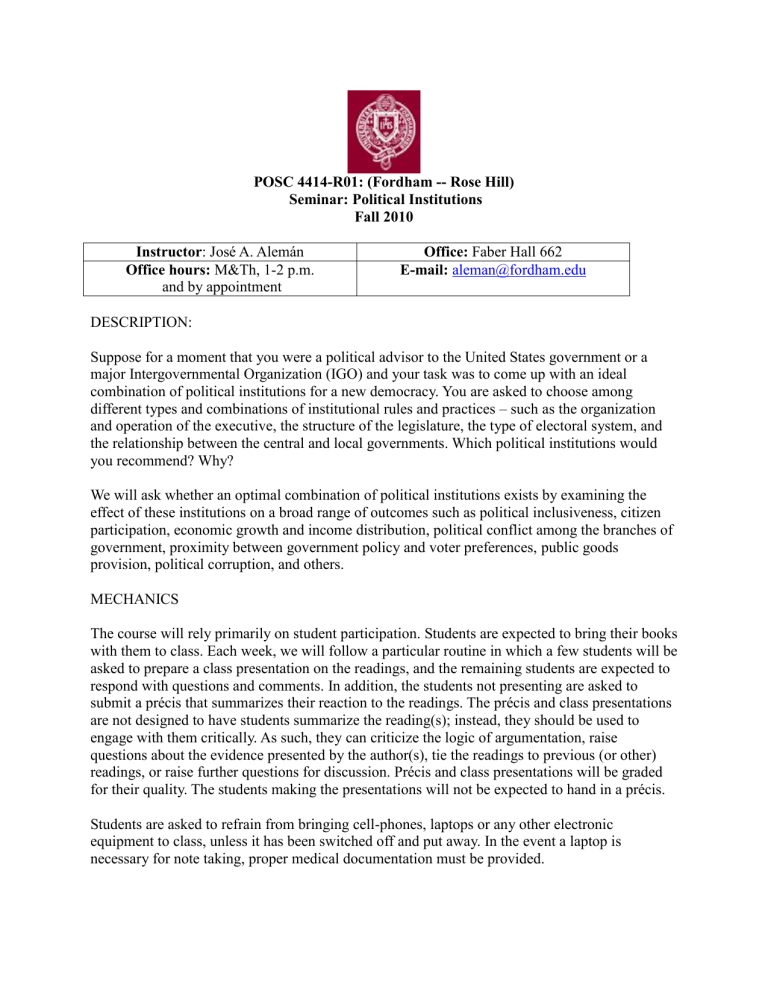
POSC 4414-R01: (Fordham -- Rose Hill)
Seminar: Political Institutions
Fall 2010
Instructor
: José A. Alemán
Office hours: M&Th, 1-2 p.m.
Office:
E-mail:
Faber Hall 662 aleman@fordham.edu
and by appointment
DESCRIPTION:
Suppose for a moment that you were a political advisor to the United States government or a major Intergovernmental Organization (IGO) and your task was to come up with an ideal combination of political institutions for a new democracy. You are asked to choose among different types and combinations of institutional rules and practices – such as the organization and operation of the executive, the structure of the legislature, the type of electoral system, and the relationship between the central and local governments. Which political institutions would you recommend? Why?
We will ask whether an optimal combination of political institutions exists by examining the effect of these institutions on a broad range of outcomes such as political inclusiveness, citizen participation, economic growth and income distribution, political conflict among the branches of government, proximity between government policy and voter preferences, public goods provision, political corruption, and others.
MECHANICS
The course will rely primarily on student participation. Students are expected to bring their books with them to class. Each week, we will follow a particular routine in which a few students will be asked to prepare a class presentation on the readings, and the remaining students are expected to respond with questions and comments. In addition, the students not presenting are asked to submit a précis that summarizes their reaction to the readings. The précis and class presentations are not designed to have students summarize the reading(s); instead, they should be used to engage with them critically. As such, they can criticize the logic of argumentation, raise questions about the evidence presented by the author(s), tie the readings to previous (or other) readings, or raise further questions for discussion. Précis and class presentations will be graded for their quality. The students making the presentations will not be expected to hand in a précis.
Students are asked to refrain from bringing cell-phones, laptops or any other electronic equipment to class, unless it has been switched off and put away. In the event a laptop is necessary for note taking, proper medical documentation must be provided.
TEXTs:
Arend Lijphart, Patterns of Democracy: Government Forms and Performance in Thirty-Six
Countries . New Haven: Yale University Press 1999.
Pippa Norris, Electoral Engineering: Voting Rules and Political Behavior . Cambridge:
Cambridge University Press 2004.
Pippa Norris, Driving Democracy: Do Power-Sharing Institutions Work?
Cambridge: Cambridge
University Press 2008.
John Gerring and Strom C. Thacker, A Centripetal Theory of Democratic Governance .
Cambridge: Cambridge University Press 2008 .
RESOURCES:
(A) books: the above list of texts are available for purchase at the Fordham University bookstore and on reserve at Walsh library.
(C) special assistance: students with disabilities or in need of additional assistance should contact the instructor at the beginning of the semester to allow for coordination of assistance with the Office of Disability Services (ODS).
EVALUATION
1) In class presentations and précis: (30%)
Students are advised to take their presentations and short writing exercises seriously since they will help researching and writing their papers.
2) Two Research papers: (30% each)
Students will be asked to write two 10-page papers on matters pertaining to the seminar using sources outside the course readings. The first paper is due November 2 nd
; the second is due during reading period. It is important that these papers be self-consciously theoretical – that is, they should address the question posed in a thorough and dispassionate manner. There is always the temptation to avoid engagement with multiple sources or sources that will not support one’s preferred argument/evidence. This should be avoided at all costs. Anybody in doubt of what is expected of a Political Science research paper should consult Lisa A. Baglione’s Writing a
Research Paper in Political Science: A Practical Guide To Inquiry, Structure, and Methods
(Wadsworth Publishing 2006).
Course schedule
9/7
9/14
9/21
9/28
10/5
10/12
10/19
10/26
11/2
11/9
11/16
11/23
11/30
12/7
Introduction
(no readings)
Consensus versus Majoritarian Democracies
Lijphart, Preface and Chapters 1-4
Executive-Legislative Relations
Lijphart, Chapters 5-8
Interest Group Systems: Pluralism versus Corporatism
Lijphart, Chapters 9-13
Effect of Political Institutions
Lijphart, Chapters 14-17
Classifying and Evaluating Electoral Systems
Norris ‘04 Part I
The Consequences for Voting Behavior
Norris ’04 Part II
The Consequences for Political Representation
Norris ’04 Part III
Norris ’04 Conclusion
Do Power Sharing Regimes Work?
Norris ’08 Part I
The Impact of Power Sharing Institutions?
Norris ’08 Part II
Norris ’08 Conclusion
Centrifugal Institutions
Gerring and Thacker Part I
Centrifugal Institutions
Gerring and Thacker Parts II&III


